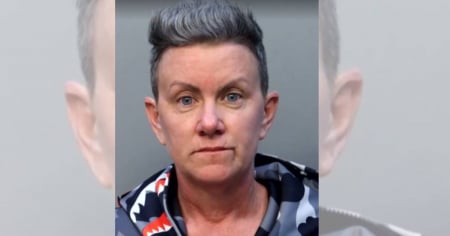The Department of Government Efficiency (DOGE), led by Elon Musk, has initiated one of the largest data cleansing operations in the history of the United States Social Security.
This measure has raised concerns among millions of beneficiaries who rely on the system for survival, while the federal government defends the initiative as a tool for controlling public spending.
According to DOGE, over 7 million records of deceased individuals without a registered date of death have already been eliminated, and another 5 million are expected to be purged in the coming weeks.
In total, it is estimated that around 12 million Social Security numbers will be reviewed and possibly removed from government databases.
The origin of the scandal: Centenarians in the records
The controversy began in February when President Donald Trump revealed that "millions of people over 100 years old" were still listed in the records of the Social Security Administration (SSA), without any documentary evidence of their passing.
This statement prompted an executive order to update the records, and DOGE took the reins of the cleanup process.
Although the SSA clarified that “the absence of a date of death does not mean that individuals continue to receive benefits”, the DOGE maintains that this inaccuracy could be facilitating multi-million dollar diversions from the federal budget.
Elon Musk and the Critique of the System
Elon Musk, leading the DOGE, has been one of the most outspoken critics of the current state of the Social Security payment system.
“The Social Security payment system seems crazy. Nobody really knows how it works. The payment files that move between Social Security and the Treasury have significant inconsistencies that are not reconciled,” Musk reported in statements captured by the U.S. press.
The review includes extreme cases: records of individuals who were allegedly over 120 years old and still appeared as alive in the system. For Musk, this situation "demonstrates a lack of control and oversight in the system", which has even led him to label the program as a "historic fraud."
Mandatory in-person verification starting in April
Starting in April of this year, new applicants and those who need to update their information will be required to verify their identity in person at a Social Security office.
This policy replaces the previous digital system, which has raised concerns, especially among the elderly and people living in rural areas.
“Unverified accounts will be classified as inactive or potentially fraudulent,” warns DOGE.
The measure also applies to existing beneficiaries who are unable to use the digital portal My Social Security. Only those who are applying for retirement benefits, such as survivors or on behalf of others, will need to visit in person.
However, community representatives and advocates for the rights of the elderly are warning about the risk of exclusion for individuals with limited mobility or restricted access to transportation.
The situation is exacerbated by the recent cut of more than 7,000 employees at the SSA, which could lead to significant delays in care.
Closure of offices and reduction of services
The massive purging of records occurs alongside another controversial measure: the closure of dozens of Social Security offices across the country.
An internal document from the General Services Administration, obtained by the Associated Press, reveals that nearly 800 office lease contracts will be suspended, impacting 47 SSA service centers.
Of these, at least 26 will close this year.
The SSA has defended the measure by stating that “most are small offices with no assigned staff” and that “many sessions with beneficiaries are now being held virtually.”
However, the saturation of phone lines, website outages, and lack of staff have led to a surge in complaints among users.
What does all of this mean for the beneficiaries?
Despite the scale of the operation, the authorities insist that current beneficiaries should not worry about their payments, as long as their information is up to date. According to Lee Dudek, the interim commissioner of the SSA, "not all the numbers under review correspond to active beneficiaries."
The SSA assures that a thorough verification is being conducted before deleting any records, to prevent errors such as mistakenly classifying a living person as deceased, which could suspend their benefits.
However, the combination of in-person verification, staff cuts, and office closures creates an uncertain landscape for millions of citizens who rely on Social Security to meet their basic needs.
Frequently Asked Questions About Social Security Purification in the U.S. Led by Elon Musk
Why have millions of Social Security records been deleted in the U.S.?
The Department of Government Efficiency, led by Elon Musk, has removed records to correct inaccuracies in the Social Security databases, specifically concerning individuals over the age of 120 without evidence of their death. This measure aims to reduce public spending and prevent budgetary misallocations.
How does this audit affect current beneficiaries of Social Security?
Although authorities assure that current beneficiaries need not worry about their payments, as long as their information is up to date, the combination of in-person verification, staff cuts, and office closures could lead to inconveniences and delays in service.
What changes will be implemented for new Social Security applicants?
Starting in April, new applicants and those who need to modify their information must verify their identity in person at a Social Security office, replacing the previous digital system. This measure has raised concerns, especially among elderly individuals and residents in rural areas.
What criticisms has Elon Musk received regarding his management of Social Security?
Elon Musk has been criticized for his aggressive approach in highlighting the lack of oversight and supervision in the Social Security system, labeling it "historical fraud." His leadership in the Department of Government Efficiency has garnered both support for his efforts to reduce spending and criticism for the social impact of his measures.
Filed under:
